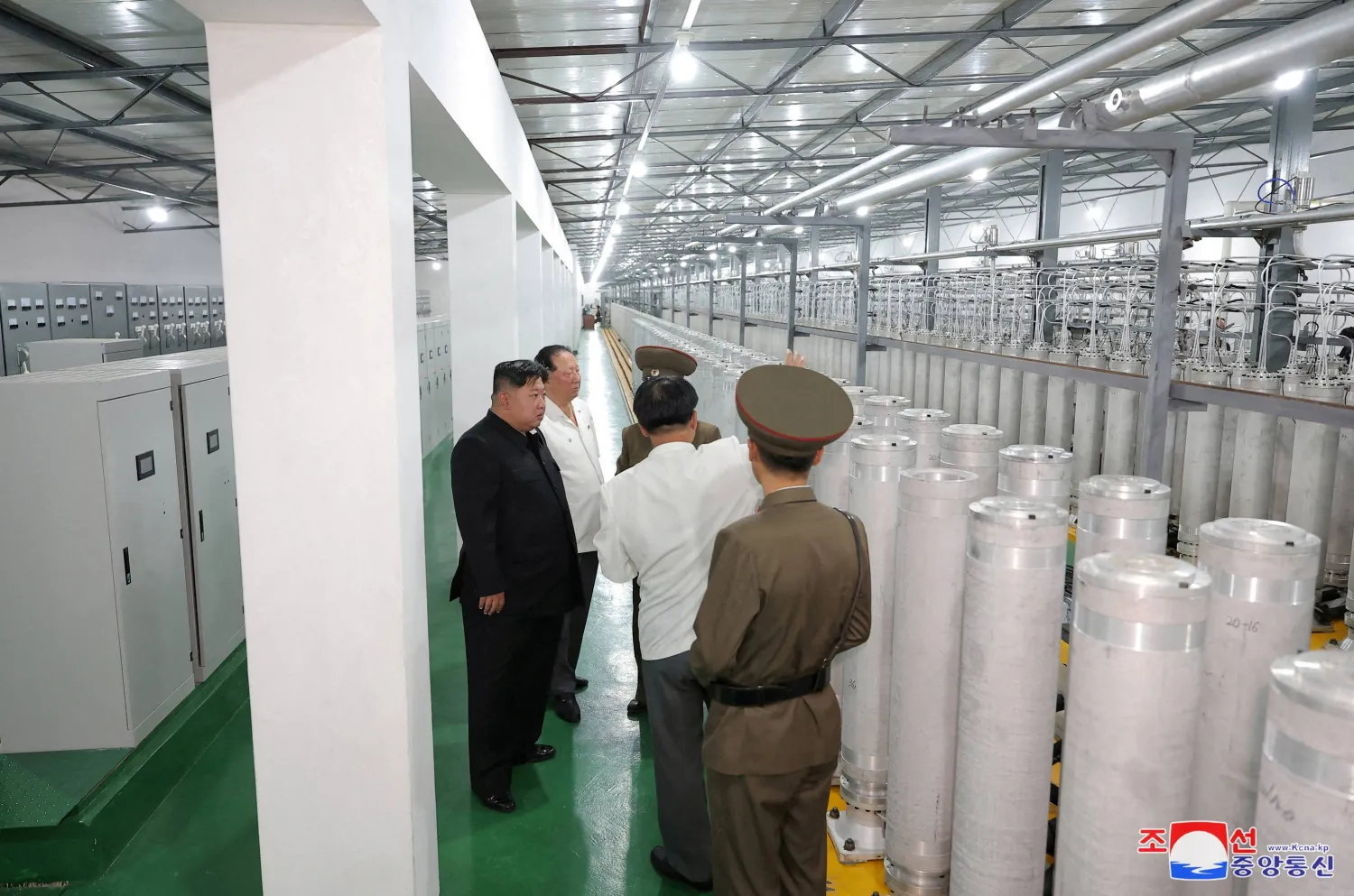North Korea has likely enriched enough uranium to build a “double-digit” number of bombs and is making progress in its efforts to develop more powerful and accurate missiles targeting rival South Korea, Seoul’s spy agency told lawmakers on Thursday.
The closed-door parliamentary briefing by the National Intelligence Service came after North Korea offered a rare glimpse into a secretive facility to produce weapons-grade uranium earlier this month as leader Kim Jong Un reiterated his goal to “exponentially” increase his stock of nuclear weapons.
According to The Associated Press, the South Korean agency assessed that Kim’s disclosure of the facility was likely a statement of defiance toward Washington ahead of the US presidential election and meant to domestically showcase his military accomplishments amid deepening economic struggles, according to Lee Seong-kweun, one of the lawmakers who attended the briefing.
When asked about North Korea’s bomb fuel capacity, the agency said North Korea likely has about 70 kilograms of plutonium and an unspecified but considerable amount of weapons-grade uranium that would be enough to build “at least a double-digit number” of weapons, Lee said.
While North Korean state media did not disclose the location of the uranium enrichment facility that Kim visited on Sept. 13, the South Korean agency said it was likely to be a site in Kangson, near the North Korean capital of Pyongyang, said Park Sun-won, another lawmaker who attended the briefing.
Along with the North’s main nuclear complex in the town of Yongbyon, the Kangson plant is one of two known sites in North Korea that has been linked to uranium enrichment activities. Some analysts say North Korea likely has other hidden sites for enriching uranium.
Kim’s visit to the uranium enrichment site was followed by a North Korean missile test days later, as the country continues to flaunt its weapons capabilities in the face of deepening confrontations with Washington and Seoul.
North Korean state media said the test launches on Sept. 18 involved two types of new missiles — one designed to deliver “super-large” conventional warheads and the other a “strategic” cruise missile, a term that implies it was developed for nuclear strikes.
North Korean state media reports on the tests suggested that North Korea was improving the capabilities of the weapons, which are designed for delivering precision strikes on South Korean targets, the lawmakers paraphrased the South Korean spy agency as saying.
Some analysts speculate that North Korea could attempt to dial up pressure on Washington by conducting a nuclear test ahead of the US presidential election.
But the South Korean spy agency assessed that North Korea could wait on a nuclear test until after the election since there are other steps it may want to try first, such as test-firing a long-range missile targeting the US mainland or launching a military reconnaissance satellite, Lee said.
Seoul's Spy Agency: NKorea Has Enough Uranium to Build 'Double-digit' Number of Bombs

FILE PHOTO: North Korean leader Kim Jong Un tours facilities during a visit to the Nuclear Weapons Institute and the production base of weapon-grade nuclear materials at an undisclosed location in North Korea, in this photo released by North Korea's official Korean Central News Agency September 13, 2024. KCNA via REUTERS

Seoul's Spy Agency: NKorea Has Enough Uranium to Build 'Double-digit' Number of Bombs

FILE PHOTO: North Korean leader Kim Jong Un tours facilities during a visit to the Nuclear Weapons Institute and the production base of weapon-grade nuclear materials at an undisclosed location in North Korea, in this photo released by North Korea's official Korean Central News Agency September 13, 2024. KCNA via REUTERS
لم تشترك بعد
انشئ حساباً خاصاً بك لتحصل على أخبار مخصصة لك ولتتمتع بخاصية حفظ المقالات وتتلقى نشراتنا البريدية المتنوعة







